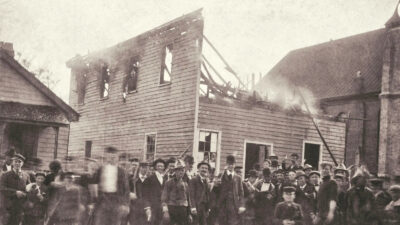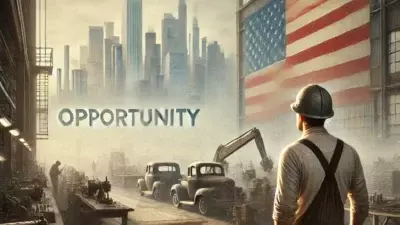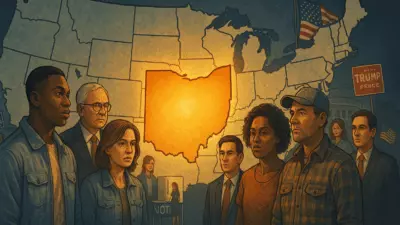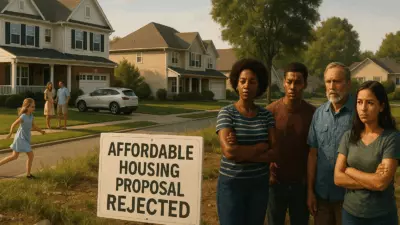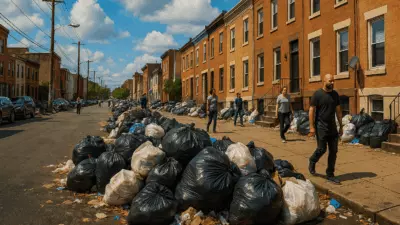Former journalist and filmmaker Yoruba Richen created a compelling documentary about the 1898 Wilmington, North Carolina, violence in which white citizens carried out a coup d’état against the city’s Black leaders, killing hundreds and burning down homes and businesses.

The Wilmington Coup of 1898 was a violent insurrection by white supremacists in Wilmington, North Carolina, on November 10, 1898. For years, it was falsely portrayed by local white newspapers as a “race riot” started by Black residents.
In reality, it was a carefully orchestrated coup d’état led by white Southern Democrats who sought to dismantle a legitimately elected, biracial Fusionist government.
A mob of approximately 2,000 white men stormed the city, forcibly removing Black and white-allied political leaders from office. They destroyed Black-owned homes, businesses, and institutions—including the Daily Record, Wilmington’s only Black newspaper. This attack decimated the economic and political power Black citizens had gained during Reconstruction.
At least 14 Black people were confirmed killed, though historians estimate the actual number was as many as 300. The violence marked the only successful coup in U.S. history and ushered in an era of Jim Crow laws and voter suppression across the South.
The Wilmington coup marked a pivotal moment in North Carolina’s post-Reconstruction political landscape. It signaled the beginning of a broader era across the South defined by intensified racial segregation and the widespread disenfranchisement of African Americans.
Filmmaker Yoruba Richen’s compelling documentary American Coup: Wilmington 1898 tells the tragic story of white supremacist successive efforts to have a duly-elected leadership violently overthrown, the only successive coup d’état in American history.

We asked Richen (pictured above) about her motivations for telling this often-overlooked and dark chapter in American history and what looking back on such a moment tells us about present-day efforts to undermine our Democracy.
The following conversation was edited for clarity and length:
Postindustrial: Do you think that there are lessons to be learned from what happened in Wilmington all those years ago that are relevant to our current political situation?
Richen: Great question. First off, it’s important for us to recognize that violence and racism are a part of our history from the very beginning, right? So it’s not surprising that these events have echoes in the present.
What happened on Jan. 6 [at the U.S. Capitol] was an attempt not to certify the presidency. So that certainly has echoes of the past.
I think an even bigger issue is that of Democracy. We claim to be a democratic country. And in some ways, we are, but in others, we are not. Things like the Electoral College, how that was founded, gerrymandering, and all these things – the fact that our Democracy can be so seemingly easy in some ways to overturn.
Postindustrial: How did you become interested in the topic of the 1898 massacre in Wilmington?
Richen: My co-director [Brad Lichtenstein] and I made a previous film together for PBS Frontline called American Reckoning, which was about racial terror in the 1960s in Natchez, Mississippi, and the killing of a local civil rights leader and his family’s pursuit of justice. It told the wider story of the Black freedom struggle in Natchez in the 1960s.
And so PBS North Carolina came to us and asked after we made that film if we would be interested in making this film.
Postindustrial: While at ABC News, you worked for the investigative journalism unit. How did your experience as an investigative journalist experience help you tell this story?
Richen: First of all, this was a team effort for sure.
My co-director, Brad Lichtenstein, our producers at PBS North Carolina, writer Peter Miller, and many others work on this project.
One of the first things we did was read the book Wilmington’s Lie, a Pulitzer Prize-winning book about the coup. We also relied on researcher Lerae Umfleet for a lot of our fact-checking.
John Jeremiah Sullivan, who’s a writer and professor, gathered a tremendous number of documents about Wilmington in 1898.
So, we had an incredible team that we could rely on to help us put this story together and ensure it was as accurate as possible.
American Coup: Wilmington 1898 will be shown in June 17 at the Heinz History Center in Pittsburgh as part of a week of events ahead of the Juneteenth national holiday.

